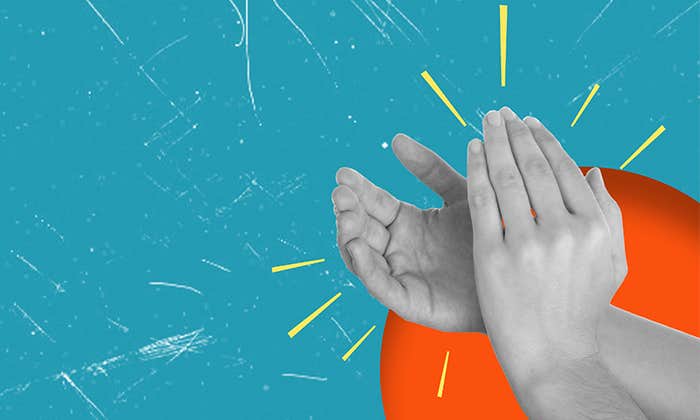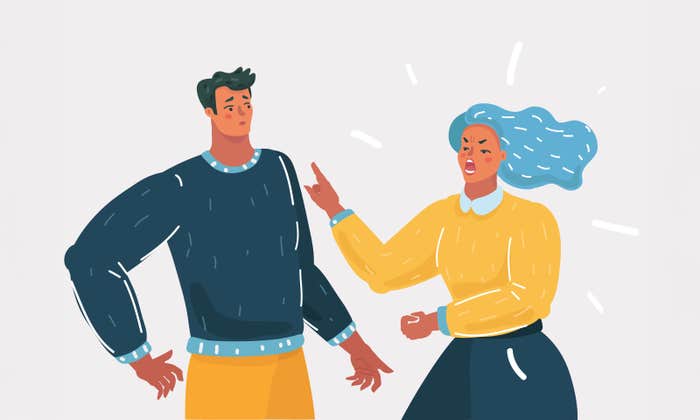
The pandemic is making its way into every corner of our lives—even the bedroom. While many parts of the world gradually return to normal, the United States still wrestles with the fallout of a mismanaged response to the new coronavirus. As 20 million Americans collect unemployment and parents face down the question of what fall will look like if schools don’t reopen—or if they do—it’s been difficult to strike an optimistic note about the accelerated future made manifest by COVID-19.
A new data point on the horizon of What. Is. Happening? comes from the Kinsey institute, which has been providing Americans with analysis of our sexual proclivities for more than 75 years. Despite initial reports that lockdowns were giving folks some much needed time for sexual self-care, a recent analysis by the Kinsey Institute showed that “widespread social restrictions put in place during the COVID-19 pandemic appear to have significantly disrupted sexual routines and the overall quality of people’s sex lives.” Roughly 43 percent of the study’s 1,550 respondents said that they had experienced a significant decrease in sexual frequency during lockdown relative the previous year.
Interestingly, a small group of respondents, some 13 percent, reported an improvement in their post-lockdown sex lives. To determine who these people were, Justin Lehmiller, Kinsey Fellow and lead author of the original study in the journal Leisure Sciences, conducted a secondary analysis of the data. From the background questions included with the survey that established things like demographics, perceived risk from the pandemic, and political orientation, he determined that self-identified conservatives accounted for the bulk of the satisfied population.
It’s the kind of experience that makes one yearn for a simple life.
Lehmiller isn’t that shocked by the results. Reached by phone, he suggested that since “we know there are differences in social distancing and perceived threat of the virus, it makes intuitive sense that conservatives are having more sex than their liberal counterparts.” A more relaxed perspective on the severity of the pandemic may prevent the increased cortisol levels that have been shown to inhibit sexual desire.
One interesting subtext of the data, likely hidden in a still-pending zip-code analysis, suggests it’s those living in the cities that are experiencing the brunt of the sexual downturn. A cursory glance at geographic distribution of party affiliation in the U.S. clearly shows that today’s conservatives are found everywhere except city centers. While there are exceptions to the liberal-urban/conservative-rural divide, for instance Vermont or Staten Island, the trend persists. Alongside their U.S. counterparts, predominantly rural-dwelling British conservatives also report increased sexual satisfaction.
Together, the data imply that the post-pandemic cityscape may be less sexy than the countryside. Like Lehmiller suggested, cityside liberals may be taking contact restrictions more seriously than their rural, conservative counterparts. The downside of this? It may be that self-isolating urbanites are running up against biochemical limitations of their responsible choices.
Solo play just isn’t as satisfying as partnered activities, and could be driving urban decreases in sexual activity. A study from Scotland’s University of Paisley found that partnered sex releases 400 percent more prolactin, the neurohormone responsible for feelings of sexual satiety, than does masturbation. This may explain the Kinsey finding that “generally, only partnered activities were linked to improvements.” It’s the kind of experience that makes one yearn for a simple life.
But while some city dwellers are dreaming of exchanging a fifth floor walkup for a suburban townhouse, plenty of others are turning to what they know best—technology. Although solo activities haven’t been as satisfying in the past, the willingness of urban dwellers to adopt new technologies may not keep things that way for much longer because sextech, a $30 billion industry of toys, apps, robots, and virtual reality is poised for its moment in the sunroom.
Bryony Cole, a consultant for the industry and host of the Future of Sex podcast, emphasizes that she’s seen an uptick in creative approaches to making the most of lockdowns. Online group chats are “replacing the bar or a party as a pick-up zone, and the emergence of online sex parties and mixers is allowing people to dip their toes into worlds they may have been hesitant to explore in the physical realm.” The normalization of new kinds of online interactions may still allow the sex lives of city slickers to rebound.
Whether virtual interactions are able to recapitulate the neurohormonal benefits of partnered sex remains to be determined. As with the rest of the topsy-turvy conditions brought on by the pandemic, it seems that the future of American sexuality is volatile and hard to predict. One thing that seems certain is something different is coming soon.
Michael Shilo DeLay and Anastasia Bendebury are biologists and co-creators of the science blog, Demystifying Science. Follow them on Twitter @Demystifysci.


























